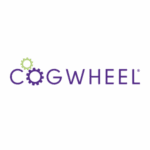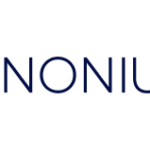 Creating value for customers and guests sits at the centre of any successful hotel and restaurant business. Hospitality as a service industry has always centred around the guest, the experience and interaction with each guest in the hotel.
Creating value for customers and guests sits at the centre of any successful hotel and restaurant business. Hospitality as a service industry has always centred around the guest, the experience and interaction with each guest in the hotel.
Many of these efforts are being improved and supported by the emergence of artificial intelligence, specifically machine learning. More data, insights and possible customer touchpoints are available to us today than ever before.
As we supported our clients through the pandemic – we were busy closing hotels, opening hotels, repositioning hotels, and rebranding hotels alongside actively reviewing the value proposition for our guests, I found 5 key principles as absolutely necessary to embrace.
The principles are focused on the commercial revenue strategy of the hotel and anchored in the function of revenue management as this was our starting point for decision making.
Principle #1 – Know and understand your customers
Revenue management has become a key function alongside the marketing department in the value creation chain for the hotel prior to the pandemic.
When the pandemic came to our countries, marketing and revenue management had to refocus their efforts on local and domestic customers and new revenue streams (e.g. F&B delivery and pick up).
What became very clear throughout this period is that to better understand and know our guests, a good working relationship of revenue management and marketing has never been more important.
Below are 4 areas for hoteliers to take action on that will benefit the hotel as revenue management and marketing collaborate closely with each other:
- Customer segmentation
- Process implementation
- Branding and Positioning
- Customer Understanding
Principle #2: Automation – embracing technology & machine learning
In the last couple of years, the advances of artificial intelligence and machine learning have given opportunity for independent hotels and smaller hotel chains to compete with larger hotel organisations across the industry.
Today, rules-based RMS are commonplace in many hotels. Many of the manual revenue management reporting process are now automated.
With the advent of machine learning and cloud-based computing, many of these complexities are being simplified.
The Revenue Manager today can focus on providing actionable insights and making relevant and timely decisions.
Embracing new technologies, automation and machine learning will empower your team and improve efficiencies significantly.
Principle #3 – Intentional innovation to shape business strategy
Covid has accelerated the emergence of new revenue streams and innovation was forced upon us as ‘business as usual’ shut down rapidly. We saw in many markets the local, independent hotels and F&B operators responding fast to lock downs and the shift in demand to local and domestic markets. We saw great adoption and integration of new revenue streams like food delivery and self-pick up.
-
Innovate intentionally
The key principle that we learned here is that we need to build a framework of intentional innovation that becomes part of the internal process and integrates with the way we approach our hospitality business.
The Design Thinking process for innovation has gained a lot of momentum in the last few years across many industries and the result of continuous improvement is paying great dividends in terms of incremental revenue streams, the delivery of exceptional and bespoke guest and customer experiences.
-
Innovation to drive business strategy
For many hotels, the planning process for 2021 will start soon or it may have already started. It is the right time to evaluate the innovation that was forced upon us by Covid and measure the strategic value of these new revenue streams.
Over and above the immediate revenue that was generated, evaluate if it is a business model worth considering in the longer term. Work with your revenue and marketing team and evaluate:
- Profitability
- Branding/Positioning
- Capital investment.
Principle #4: Adapting leadership and organizational culture & engagement
These changes outlined in the article have an enormous impact on the organizational culture and engagement. Senior executives across the countries might identify with at least one, or even all the pressure points mentioned below. We have identified this pressure point with our clients and hear them echoed from other industry leaders, including the HSMAI Revenue Advisory Board Asia Pacific:
-
Leading teams remotely
Most of us would have experienced a form of video conferencing fatigue on some levels. Interaction with colleagues at work, onboarding and integrating new team members, often without meeting them in person, is difficult.
It is important for executives to take action and to adapt the existing leadership style and to learn new skills to keep our teams engaged.
-
Revenue Management function specific changes:
We have generally seen one of two changes:
- Revenue Managers having to scale up and take on more hotels.
- Revenue Managers taking on responsibilities of other hotel functions – covering front office, reservations, or sales and marketing.
Hoteliers are often weighed down with an overly complex revenue management function and systems that require weeks of training. These changes tie back to the point on embracing automation and technology to help increase productivity and efficiency.
-
Talent related issues
Many of team members we had to let go are leaving the industry and may not return when things get better. Losing specialised revenue management experts is difficult and costly. New solutions and options need to emerge in greater measure to support the industry.
The crisis has exposed flaws and the weakest links in the traditional organizational structures, culture, and leadership approach. We need to rethink the way we attract, lead and build our teams as we come out of the pandemic.
Principle #5: Strategic partnerships
The article highlights very deep and far-reaching pressure points that need addressing going forward. The principles mentioned will help leaders think of and find solutions for all of them.
All mentioned solutions can be implemented and supported by the business leader if he or she spends time researching, reading, and practice the principles.
However, the best results we have seen in the last 10 years of working with hoteliers is to find the right strategic partner and advisor in some of these specialist areas like revenue management, strategic marketing (not just outsourcing your digital marketing), and strategic business advise incl IT. Experts who will walk with the leadership team in identifying new approaches and implementing them successfully.
For hoteliers and owners that identify themselves in this situation, I recommend making a decision and starting a conversation in a discovery call with an expert to discuss their situation and find out the options available to them.
In summary, after 10 years of working as an advisor and business specialist in the industry, I am convinced that to the degree we will engage in these 5 principles in the next few years, will be the degree we see successful hotel and restaurant businesses.
The environment will continue to challenge our industry in its strategic intent, and our focus must be on the future, centred on moving from buying a hotel stay to buying a meaningful experience. The earlier we take action and address these issues, the better we will be navigating through these unprecedented times.
By Heidi Gempel
If you require any more information or if you would like to schedule a free 30-minute strategy session with Heidi about your specific situation, please contact her at heidi@hge-international.com. To find out more about the service she provides, please visit www.hge-international.com.



















